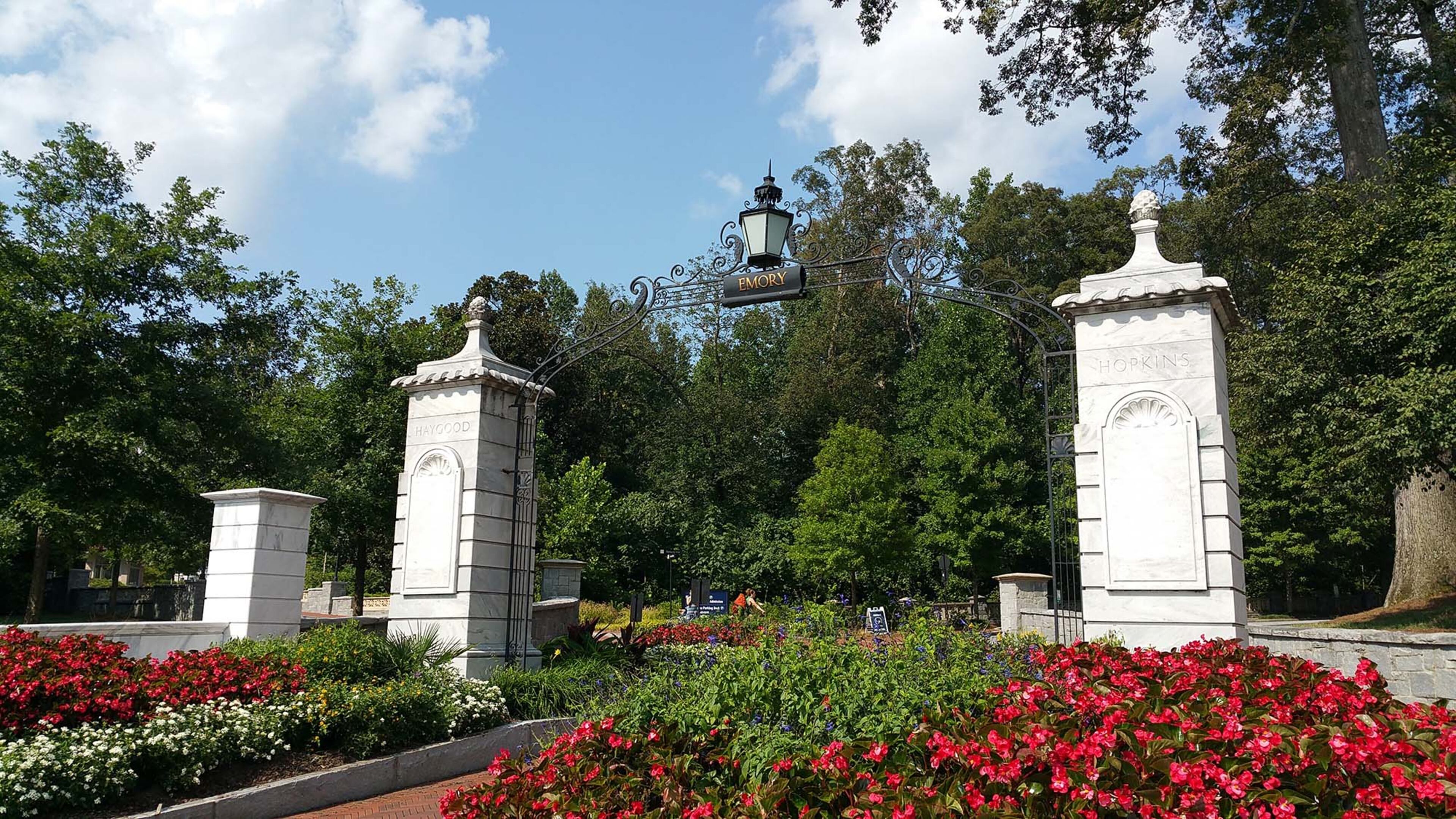Group urges Emory to remove names honoring ‘leading figures of racism’

Several dozen Emory University graduates, faculty members and students are pressuring the school to change the names of buildings and professorships named after four men they call “leading figures of racism, slavery, antisemitism and eugenics.”
The group recently sent a letter to Emory’s president, Gregory Fenves, demanding he act on recommendations by a university committee in May to remove the honors for Atticus Greene Haygood, Lucius Q.C. Lamar, George Foster Pierce and Robert Yerkes.
“(T)hey should no longer be celebrated as heroes at our beloved school,” the letter said.

The committee recommended removing naming honors of five men. Fenves acted on just one name change: August Baldwin Longstreet, a former Emory president who supported slavery. Those who signed the letter wonder why administrators didn’t change the four other names.
University administrators declined an interview request, releasing a one-sentence statement that said Fenves is actively evaluating the recommendations.
Emory, the state’s largest private university, is among many schools nationwide in recent years to reflect on the disturbing parts of its history. Emory, founded in 1836, has acknowledged it used slave labor to build the campus.
Colleges are often reluctant to act in part because the changes may anger major donors, said Lori Patton Davis, who chairs the Department of Educational Studies at Ohio State University.
The Georgia Board of Regents was criticized in November when it decided not to act on an advisory group’s recommendations to rename more than six dozen buildings and colleges named after men who were slaveowners and ardent segregationists. The board said it considered factors, such as the totality of the person’s contributions to the state and nation.

Emory law school professor George Shepherd has been on the front lines of the effort to remove Yerkes’ name from the university’s primate research center.
“It’s a clear case for Emory to do the right thing,” said Shepherd.
Former Atlanta school board chair Jason Esteves, who graduated from Emory’s law school in 2010, signed the letter. He has been involved in contentious renaming decisions as a school board member.
“They belong in the history books,” Esteves said of the four men. “The difference is they shouldn’t be put on a pedestal.”
Patton Davis said these conversations are important, but it’s as critical for universities like Emory to enact measures that improve access, retention and graduation rates for historically marginalized students.
“That’s where I think the investment can and should be,” Patton Davis said.
The names in question

Atticus Greene Haygood
A residence hall is named after Haygood, Emory’s president from 1875 to 1884. Haygood helped found what is now Paine College, a historically Black college in Augusta. Haygood was outspoken against Blacks voting after the Civil War and supported the idea of putting the parents of biracial children on chain gangs.

Lucius Q.C. Lamar
Three law school professorships bear the name of Lamar, an Emory graduate who was on the U.S. Supreme Court from 1888 to 1893. Lamar defended slavery, saying “life will be unbearable” if Blacks gained voting rights.

George Foster Pierce
A street on Emory’s Atlanta and Oxford campuses are among the honors for Pierce, who was its president from 1848 to 1854. He frequently defended slavery.

Robert Yerkes
Yerkes founded the Yale University Laboratories of Primate Biology, which was moved after his death in 1956 to Emory. He developed psychological tests during World War I that reinforced white supremacy. Yerkes supported eugenics and the sterilization of the disabled and mentally ill.
Source: Emory University Committee on Naming Honors



